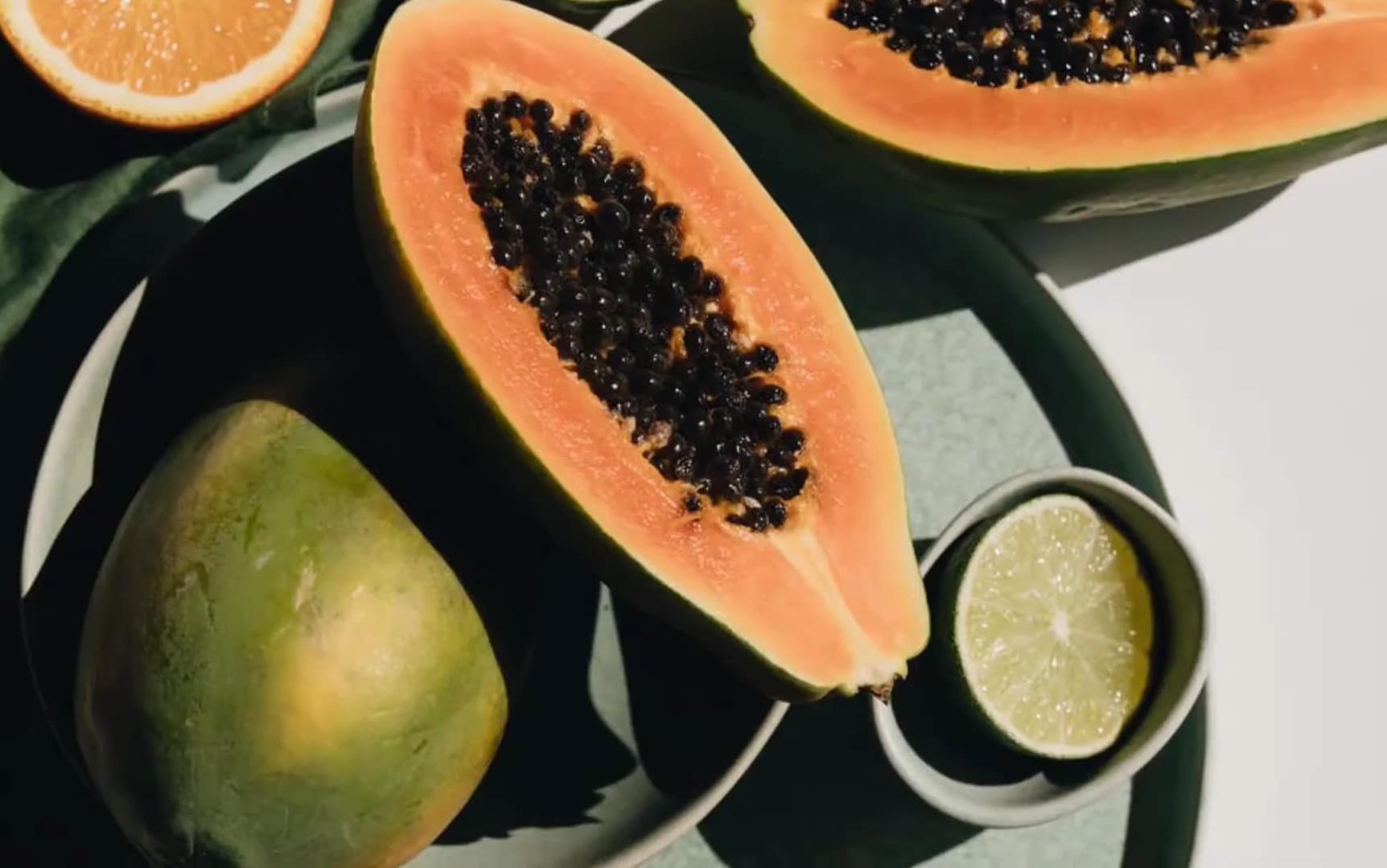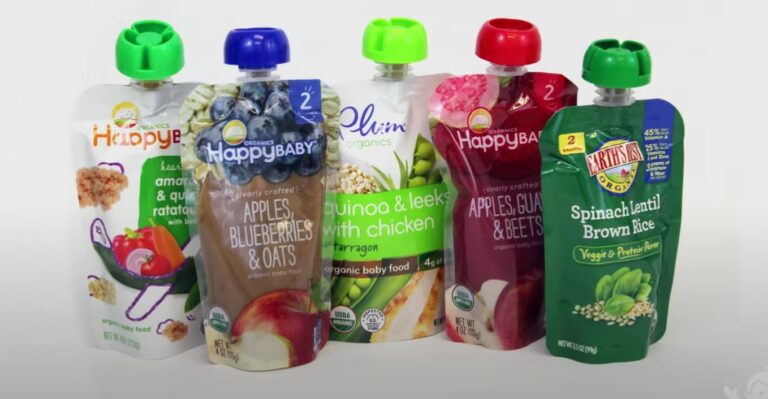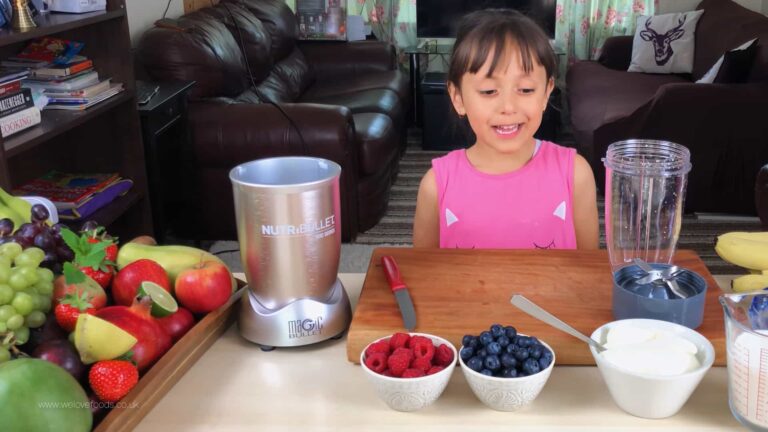Benefits of Papaya for Babies: Boost Baby’s Immunity
Papaya provides numerous benefits for babies, including aiding in digestion and preventing constipation. It is also rich in vitamins A and C, which support immune system function and promote healthy skin and eyesight.
Introducing papaya to a baby’s diet can increase the nutritional value of their meals and help them develop healthy eating habits. However, it is important to start with small portions and gradually increase the amount as the baby grows. Additionally, it is crucial to peel and de-seed the papaya before serving it to ensure safety and avoid any potential side effects.
Why Introduce Papaya Puree To Your Baby?
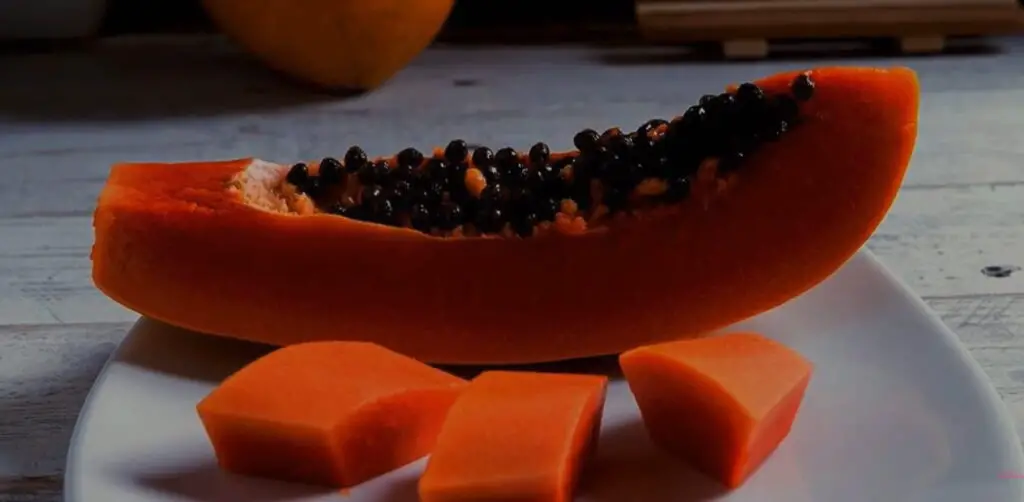
Papaya is a delicious and nutritious fruit that can be a great addition to your baby’s diet. Introducing papaya puree to your baby brings numerous benefits for their growth and development. From providing essential nutrients to supporting digestion and boosting the immune system, papaya is a perfect choice for your little one.
Nutritional Benefits Of Papaya For Baby’s Growth And Development
Besides being tasty, papaya is packed with essential nutrients that are crucial for your baby’s growth and development. Here are some of the key nutrients found in papaya:
- Vitamin A: Papaya is rich in vitamin A, which is essential for healthy vision, immune function, and cell growth.
- Vitamin C: This fruit is a great source of vitamin C, which supports collagen synthesis, wound healing, and a healthy immune system.
- Dietary Fiber: Papaya contains dietary fiber that aids in digestion and prevents constipation.
- Potassium: Potassium in papaya helps maintain fluid balance and supports the normal functioning of muscles and nerves.
- Antioxidants: Papaya is rich in antioxidants that protect cells from damage caused by free radicals.
Introduction To Papaya As A Complementary Food
Papaya is considered an ideal choice when introducing complementary foods to your baby. It is generally safe to introduce papaya puree to your baby around the age of 6 to 8 months after they have started eating single-grain cereals and pureed fruits and vegetables.
It is important to note that every baby is different, and it is always recommended to consult your pediatrician before introducing any new food to your baby’s diet.
How Papaya Supports Digestion And Immune System
Papaya contains enzymes called papain and chymopapain, which aid in digestion and help break down proteins. This can be particularly beneficial for babies who are just starting solid foods and may have a harder time digesting certain foods.
In addition to aiding digestion, papaya also supports the immune system. The high vitamin C content helps strengthen the immune system, protecting your baby from illness and infections.
By introducing papaya puree to your baby, you can ensure their digestive system stays healthy and their immune system remains strong.
Key Nutrients Found In Papaya And Their Benefits For Babies
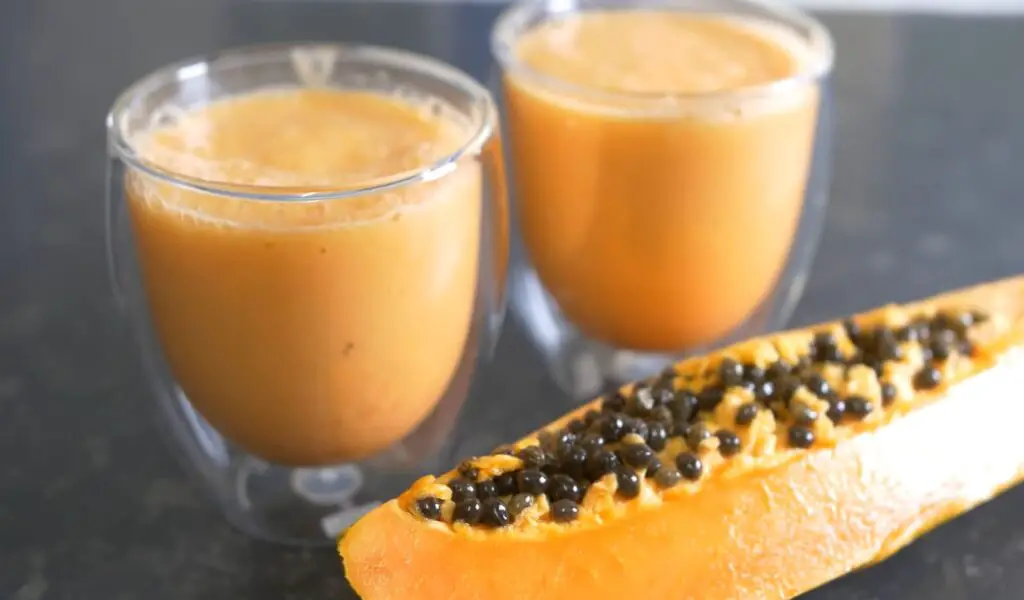
Vitamin C – Strengthens Immunity
Papaya is a powerhouse of vitamin C, which plays a crucial role in strengthening a baby’s immunity. This essential nutrient helps in the production of white blood cells, which are responsible for fighting off infections and diseases. By including papaya in your baby’s diet, you can ensure that they have a robust immune system to protect them against common illnesses.
Vitamin A – Promotes Healthy Vision
Another key nutrient found in papaya is vitamin A. This nutrient is essential for promoting healthy vision in babies. It plays a vital role in maintaining the health of the eyes and can prevent conditions like night blindness and dry eyes. By introducing papaya into your baby’s diet, you can help support their visual development and ensure that their eyes remain healthy.
Fiber – Aids Digestion And Prevents Constipation
Papaya is rich in fiber, which is beneficial for your baby’s digestive system. The high fiber content in papaya can help regulate bowel movements, preventing constipation in babies. A healthy digestive system is crucial for proper nutrient absorption and overall well-being. By including papaya in your baby’s diet, you can promote good digestive health and prevent common gastrointestinal issues.
Potassium – Supports Heart Health
Papaya is a great source of potassium, an essential mineral that supports heart health. Potassium helps regulate blood pressure and maintains a healthy heart rhythm. By including papaya in your baby’s diet, you can help support their cardiovascular system and reduce the risk of heart-related issues in the future.
Folate – Helps In Proper Brain Development
Folate, also known as vitamin B9, is another key nutrient found in papaya. It is essential for proper brain development in babies. Folate plays a crucial role in the production of DNA and other genetic material. By including papaya in your baby’s diet, you can ensure that they receive an adequate amount of folate, which is vital for their brain health and cognitive development.
Digestive Benefits Of Papaya For Babies
Papaya is a delicious and nutritious fruit that offers numerous benefits for the digestive health of babies. This tropical fruit contains a powerful enzyme called papain, which aids digestion and provides relief from common digestive issues faced by infants. Let’s explore the digestive benefits of papaya for babies:
Enzyme Papain Aids Digestion
The enzyme papain, found abundantly in papaya, helps break down proteins and improves the overall digestion process. It assists in the breakdown of complex foods, making them easier for your baby’s system to process. By aiding digestion, papain promotes nutrient absorption and ensures that your baby is getting the most out of their meals.
Helps Relieve Constipation
Papaya is a natural source of dietary fiber, which promotes regular bowel movements and helps prevent constipation in babies. Fiber adds bulk to the stool, making it easier to pass. Regular consumption of papaya can regulate bowel movements and ensure your baby’s digestive system stays healthy and regular.
Soothes The Gastrointestinal Tract
The smooth texture and soothing properties of papaya make it an excellent choice for babies with sensitive stomachs or gastrointestinal issues. Papaya has been known to alleviate symptoms of colic and acid reflux, providing relief to your little one’s delicate digestive system. Its natural anti-inflammatory properties can help soothe any discomfort your baby may be experiencing in their gastrointestinal tract.
Health Benefits Of Papaya For Baby’s Immune System
Antioxidants In Papaya
Papaya is a rich source of antioxidants, which play a crucial role in enhancing your baby’s immune system. Antioxidants protect the body against damage caused by free radicals and oxidative stress, which can weaken the immune system. The high levels of vitamin C and beta-carotene in papaya act as antioxidants, helping to neutralize harmful free radicals and support a strong immune response.
Boosting Immune Response
Consuming papaya can help boost your baby’s immune response. The vitamin C in papaya stimulates the production of white blood cells, which are responsible for fighting off infections and invading pathogens. A strong immune response is vital in keeping your baby healthy and protected from illnesses.
Reducing The Risk Of Infections
Papaya is known for its antimicrobial properties, which can help reduce the risk of infections in babies. The enzymes, papain, and chymopapain, found in papaya, have been shown to have antibacterial and antiviral effects, inhibiting the growth of harmful bacteria and viruses. By incorporating papaya into your baby’s diet, you can help strengthen their defenses against common infections. In addition to its immune-boosting benefits, papaya is also a great source of essential nutrients such as vitamin A, folate, and potassium. These nutrients are important for your baby’s overall growth and development. Introducing papaya to your baby’s diet can be done by feeding them pureed or mashed papaya. Start with small amounts initially, gradually increasing the portion size as your baby grows. Remember to always consult with your pediatrician before introducing any new food to your baby, especially if they have any known allergies or medical conditions. Including papaya in your baby’s diet can have numerous health benefits, particularly in strengthening their immune system. By providing them with the right nutrients and antioxidants, you are setting a solid foundation for their overall health and well-being.
Incorporating Papaya Into Baby’s Meals: Tasty Recipes To Try
Papaya is a delicious and nutritious fruit that offers numerous benefits for babies. From aiding digestion to boosting the immune system, papaya is a wonderful addition to your little one’s diet. If you are wondering how to incorporate papaya into your baby’s meals, here are some tasty recipes to try:
Papaya Puree
Papaya puree is a simple and versatile recipe that can be enjoyed by babies of all ages. To make papaya puree, follow these steps:
- Peel and remove the seeds from a ripe papaya.
- Cut the papaya into chunks.
- Blend the papaya chunks in a food processor or blender until smooth.
- Transfer the puree into ice cube trays or small containers for convenient portioning.
- Store in the refrigerator or freezer for future use.
Papaya puree can be served on its own or mixed with other fruits or vegetables to create new flavor combinations.
Papaya And Banana Smoothie
A papaya and banana smoothie is a refreshing and nutritious option for your baby. Here’s how you can prepare it:
- Peel a ripe banana and cut it into chunks.
- Peel and remove the seeds from a ripe papaya and cut it into chunks.
- Add the banana and papaya chunks to a blender.
- Add a little water or breast milk/formula for a smoother consistency.
- Blend until smooth.
- Pour the smoothie into a cup or serve it in a baby-friendly feeding bottle.
This smoothie is not only delicious but also rich in vitamins and minerals that are essential for your baby’s growth and development.
Papaya And Oatmeal Porridge
Papaya and oatmeal porridge is a hearty and nutritious meal for your baby. Here’s how you can make it:
- Cook plain oatmeal according to the package instructions.
- Peel and remove the seeds from a ripe papaya and cut it into small pieces.
- Add the papaya pieces to the cooked oatmeal and mix well.
- Allow the porridge to cool slightly before serving to your baby.
This porridge is not only packed with fiber but also provides a good balance of carbohydrates, vitamins, and minerals to keep your baby satisfied and nourished.
With these tasty recipes, you can easily incorporate papaya into your baby’s meals and provide them with the benefits of this nutritious fruit. Experiment with different combinations and flavors to keep mealtime exciting and enjoyable for your little one.
Safety Considerations And Precautions When Introducing Papaya
Allergies And Sensitivities
While papaya is generally considered safe for babies, it is important to be aware of any potential allergies or sensitivities. Some babies may have an allergic reaction to papaya, which can manifest as skin rashes, diarrhea, or vomiting. If your baby has a known allergy to latex, it is advised to exercise caution when introducing papaya, as it belongs to the same plant family and can trigger a cross-reaction.
Portion Control And Moderation
When introducing papaya to your baby, it is essential to practice portion control and moderation. Start by offering a small amount, such as a teaspoon or two, and observe how your baby reacts. Gradually increase the portion size as your baby gets accustomed to the fruit. Too much papaya can cause digestive issues, such as diarrhea, due to its enzyme content.
Consulting A Pediatrician
Prior to introducing any new food into your baby’s diet, it is crucial to consult with a pediatrician. They can provide personalized guidance based on your baby’s age, overall health, and potential dietary restrictions. Your pediatrician will be able to advise if your baby is ready for papaya and can also address any specific concerns or questions you may have.
To summarize, when introducing papaya to your baby, it is important to be mindful of potential allergies and sensitivities, practice portion control and moderation, and consult a pediatrician for personalized guidance. By following these safety considerations and precautions, you can ensure a smooth and positive experience when introducing papaya to your baby’s diet.
Frequently Asked Questions On Benefits Of Papaya For Babies
What Are The Side Effects Of Papaya For Babies?
Papaya for babies has no major side effects. However, excessive consumption may cause diarrhea or upset stomach. Start with small amounts and gradually increase as the baby grows. Always consult a pediatrician before introducing new foods to your baby’s diet.
How Much Papaya Should A Baby Eat?
Initially, a baby should only eat a small amount of papaya, like a teaspoon or two. As the baby grows, you can increase the amount and mix it with other foods to enhance its nutritional value. Papaya is a healthy fruit for babies, packed with vitamins A and C.
What’s The Best Fruit For Babies?
The best fruit for babies is papaya. It is packed with essential nutrients like vitamins A and C, which support their immune system and eyesight. Papaya is also high in fiber, potassium, and magnesium. Start with a small amount and gradually increase as the baby grows.
Can We Give Papaya To Baby At Night?
Yes, papaya can be given to a baby at night. It is a nutritious fruit packed with vitamins A, C, and E, as well as potassium, magnesium, and fiber. Papaya is beneficial for the baby’s eyesight, immune system, and skin.
Start with a small amount and gradually increase as the baby grows.
Conclusion
Incorporating papaya into your baby’s diet can bring a multitude of benefits. From aiding digestion to boosting the immune system, the high nutritional value of papaya is a fantastic addition to their meals. The vitamins and minerals found in papaya, such as vitamin C and fiber, can contribute to the overall health and development of your baby.
By introducing this tropical fruit gradually, you can ensure your baby reaps the rewards of papaya in a safe and enjoyable way. So go ahead and introduce this delicious fruit to your little one’s diet and experience the amazing benefits it has to offer.

